
Baccharis halimifolia
(Groundsel Tree)
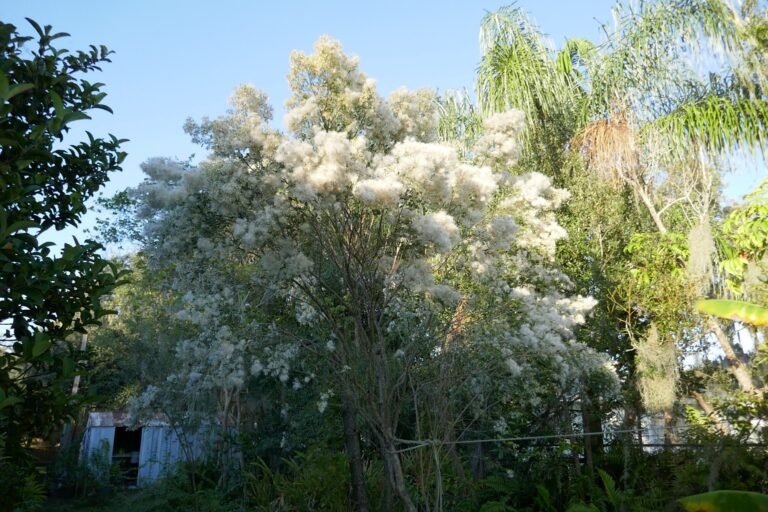
Common Names, Latin Name and Family
Some of its common names include groundsel tree, saltbush, silverling, and sea myrtle.
The Latin name is Baccharis halimifolia.
It is found in the Asteraceae, or aster, family.
Form
Groundsel tree is a native tree that grows rather like a shrub than a tree which makes the name a little confusing. It actually behaves as an understory tree with the stature of a large shrub.
It reaches a height of ten feet with a spread of ten feet wide at maturity.
It can be trained to a single trunk, however it is usually multi-trunked.
Leaves
The leaves are evergreen, alternate, and spatulate.
The margins are deeply toothed and notched and grow up to 3 inches in length.
The color is light green to silvery green.
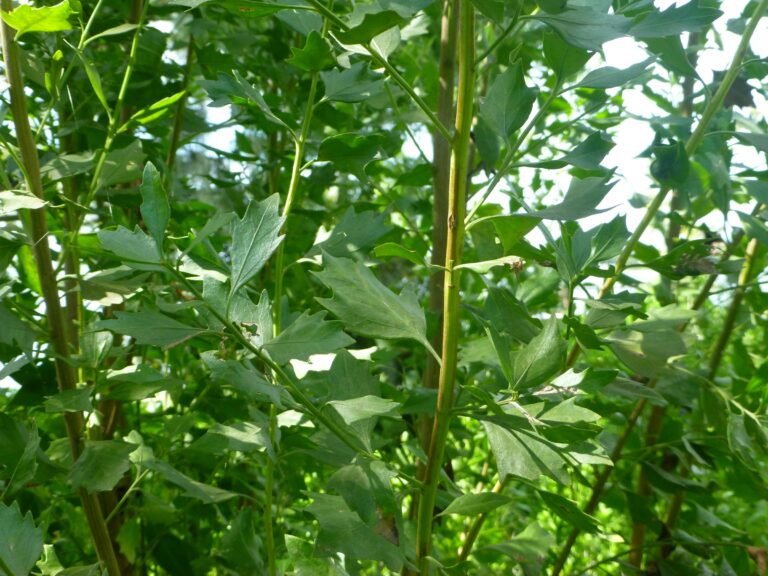
Flowers
The flowers are small, white or greenish and in compound heads. The male and female flowers are on separate plants (dioecious). White hair like bristles extend beyond the leafy bracts of the female flowers giving the plant a cottony, or silvery appearance. The bristles also help in dispersing the tiny seeds. The flowers appear in the fall at a time when few other plants flower.
The similar Baccharis glomerulifolia can be distinguished by having flower heads that tend to be short stalked or sessile and appear clustered around the leaf axil. Both species are found in the same habitat.
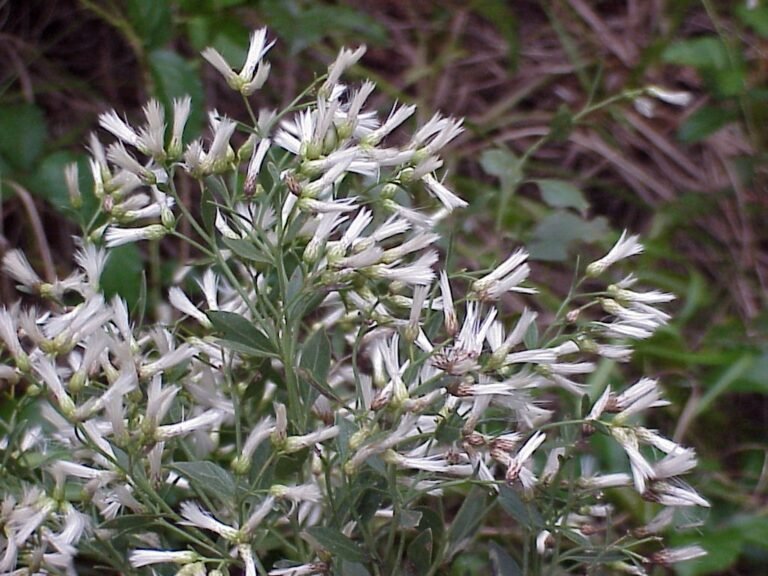
Fruit / Seeds
Once the flowers are pollinated and the seeds ripen they burst open with fluffy pappuses that help them to be carried away by the wind.
When the tree is covered with ripe seeds it is white and fluffy and looks like a cotton candy covered tree.
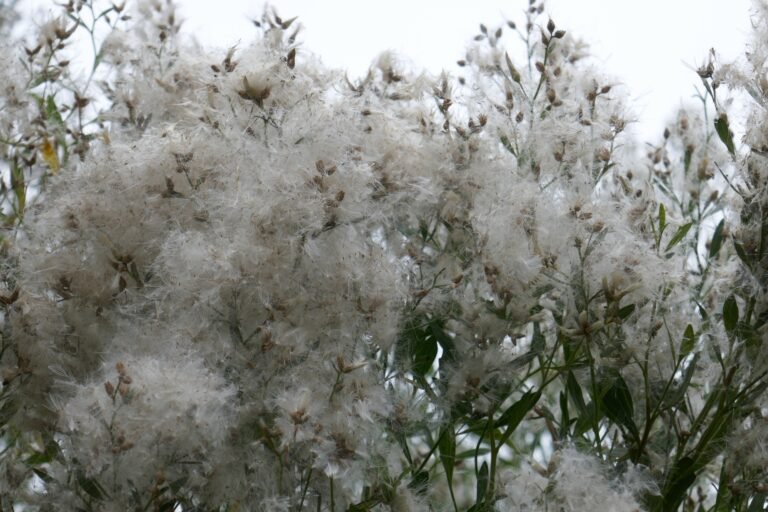
Habitat
It naturally occurs along the edges of salt and freshwater marshes, sloughs, old fields, and disturbed sites, both wet and dry.
Native Range
Groundsel tree is found growing throughout Florida and along the coast to Texas and Massachusetts.
Landscape Use
Groundsel tree is a useful shrub for reclaiming moist or wet sites. It is an excellent addition along retention areas and drainage ponds, and it is also a nice addition to any landscape because it flowers when few other plants are flowering.
The leaves and flowers of this plant contain a cardioactive glycoside that is poisonous to grazing livestock. The evergreen appearance is attractive to grazing animals when other forage is not available so care should be taken to remove it from pastures. DO NOT let this grow where your livestock can eat it!
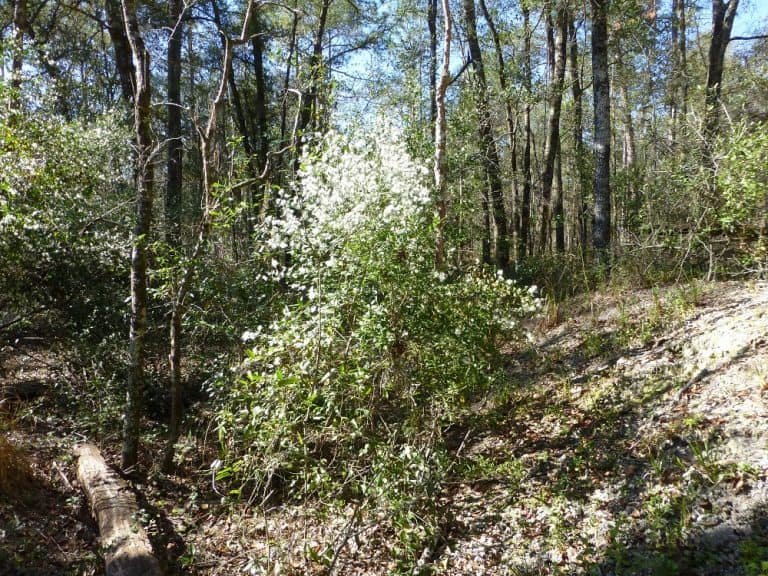
Wildlife Use
Bees and small butterflies use the nectar from the flowers of saltbush, which in turn attract songbirds and other wildlife which forage on the insects.
Propagation
Groundsel tree can be grown from seeds and transplants.
Instant gratification can be achieved by transplants. It can be transplanted at just about any size as long as most of the upper vegetation is trimmed off to reduce shock.
Please buy my Florida ecotype seeds of groundsel tree here at my Ebay store!